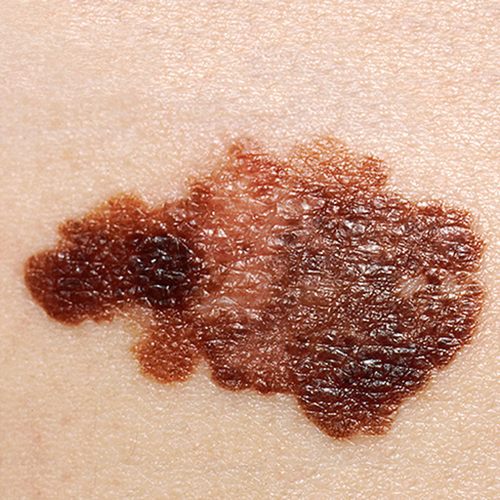
Over the last decade, immune checkpoint inhibitors have dramatically shifted the treatment and outcomes for patients with advanced melanoma. In a new publication in the New England Journal of Medicine, the final 10-year results of the 945-person, phase III CheckMate 067 trial were reported. This puts a close on the landmark trial and confirms how combination immunotherapy (nivolumab plus ipilimumab) or nivolumab monotherapy has reshaped survival expectations. With nearly half of patients surviving 10 years or more on combination therapy, the trial demonstrates that long-term control may be within reach for many.
The CheckMate 067 trial: A long-term look at survival
The CheckMate 067 trial was a pivotal study that randomized patients with previously untreated, advanced Stage III or IV melanoma with a known BRAF mutation to one of three treatment regimens: nivolumab plus ipilimumab, nivolumab monotherapy, or ipilimumab monotherapy. Prior analyses had already demonstrated the superior efficacy of nivolumab-containing regimens, but this 10-year follow-up offers crucial new insights.
With a minimum follow-up of 10 years, the trial found that median overall survival (OS) was significantly longer in the nivolumab plus ipilimumab group (71.9 months) compared to either nivolumab monotherapy (36.9 months) or ipilimumab monotherapy (19.9 months).
The results were even more striking in terms of melanoma-specific survival (MSS). The median MSS was more than 120 months for the nivolumab plus ipilimumab group (MSS not reached, indicating a long duration of disease control), with 37% of patients still alive at the end of the trial. The MSS at 10 years was 52% for nivolumab plus ipilimumab, 44% for nivolumab, and 23% for ipilimumab.
The durability of the survival benefit seen with nivolumab plus ipilimumab is particularly noteworthy. Among patients who were alive and progression-free at three years, the 10-year melanoma-specific survival was 96% with nivolumab plus ipilimumab, 97% with nivolumab alone, and 88% with ipilimumab. These data suggest that patients who reach the three-year mark without disease progression have a high likelihood of long-term survival, further emphasizing the transformative potential of immune checkpoint inhibitors.
Interestingly, the trial also highlighted the divergence between melanoma-specific survival and overall survival. Beyond five years of follow-up, more patients with advanced melanoma were dying from non-cancer-related causes, suggesting that the treatment had successfully transformed the disease into a chronic, manageable condition for a significant subset of patients.
Addressing new clinical questions in long-term survivors
The impressive long-term survival data from CheckMate 067 brings new clinical questions to the forefront. For example, the findings inform post-treatment follow-up strategies, such as the frequency of imaging and clinical visits. Patients who achieve long-term survival may require less frequent surveillance, reducing the burden of ongoing testing while maintaining effective care.
Additionally, the 10-year follow-up provides insights into patterns of disease progression and the control of metastases, particularly to the central nervous system (CNS). The combination of nivolumab and ipilimumab continued to demonstrate efficacy in controlling brain metastases, a common and serious complication of advanced melanoma. This finding is consistent with observations from other studies and further supports the use of this combination therapy in patients at risk of CNS involvement.
Safety and long-term toxicity
One of the concerns with long-term use of immune checkpoint inhibitors has been the potential for delayed or cumulative toxicity. However, the CheckMate 067 trial found no new safety signals after 10 years of follow-up. Most treatment-related adverse events occurred early in the treatment course and were managed using established guidelines. Despite the higher incidence of adverse events in the nivolumab plus ipilimumab group compared to monotherapy groups, these events did not detract from the long-term survival benefit.
Moreover, patients who experienced severe treatment-related adverse events (grade 3 or 4) or who discontinued therapy due to toxicity within the first six months still had excellent long-term outcomes. This underscores the idea that even with a shortened duration of therapy, durable responses and survival are possible, further highlighting the strength of immune checkpoint inhibitors in managing advanced melanoma.
Impact on future treatment strategies
The success of nivolumab and ipilimumab combination therapy in CheckMate 067 has broader implications for treating advanced melanoma. While nivolumab monotherapy remains a highly effective option, adding ipilimumab appears to confer additional benefits in terms of both OS and MSS, particularly for patients with high-risk disease features, such as CNS involvement or BRAF mutations.
The trial’s authors also point to the possibility of further improving outcomes through new therapeutic approaches. “Emerging treatments, such as combination therapies involving anti–PD-1 and anti–LAG-3 agents, may offer similar efficacy to ipilimumab-containing regimens with fewer side effects,” they write. “Triplet therapies combining anti–CTLA-4, anti–PD-1, and anti–LAG-3 agents may be more effective than the available combination therapies; however, larger studies are needed to confirm these date.”





